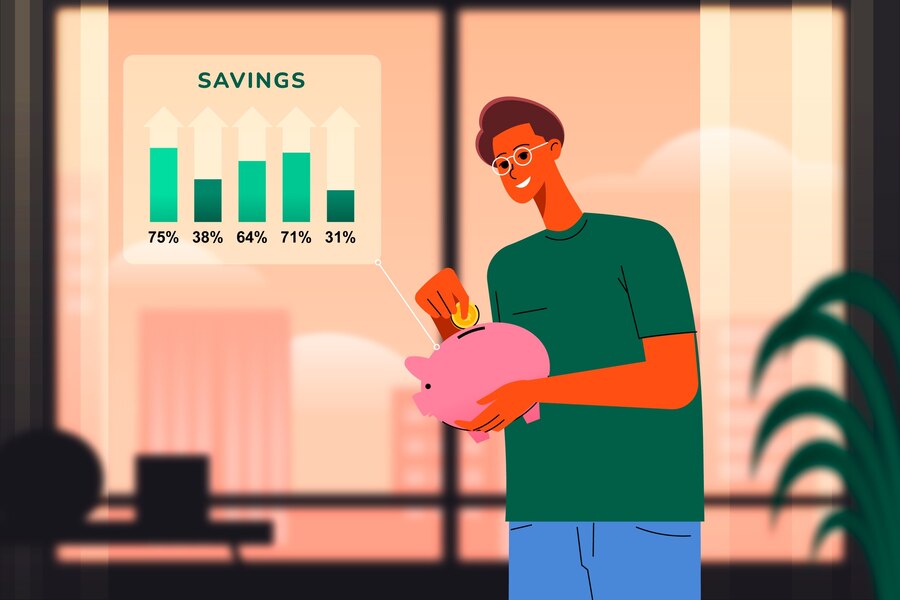When considering a personal loan, one of the most crucial factors to understand is loan tenure. Loan tenure, or the repayment period, significantly impacts your monthly payments, interest costs, and overall financial health.
Apply for an instant personal loan with low interest rates and easy repayment options from Airtel Finance, via the Airtel Thanks app. Fewer documents, greater eligibility, seamless process and more.
What is Loan Tenure?
Definition of Loan Tenure
Loan tenure refers to the length of time over which a borrower agrees to repay a loan. It is the period between the loan disbursement date and the final repayment date. Loan tenures can range from a few months to several years, depending on the type of loan and the lender’s policies.
How Loan Tenure is Determined
Lenders determine loan tenure based on several factors, including the loan amount, the borrower’s repayment capacity, credit history, and the purpose of the loan. Borrowers often have the flexibility to choose their preferred tenure within the lender’s offered range, allowing them to tailor their repayment plan according to their financial situation.
Read more: Tips to get personal loans for self-employed
Impact of Loan Tenure on Repayments
Monthly Instalments
The loan tenure directly affects the amount of your monthly instalments. A longer tenure spreads the loan amount over a more extended period, resulting in smaller monthly payments. Conversely, a shorter tenure compresses the repayment period, leading to higher monthly instalments. This balance between tenure and instalment is crucial for managing your monthly budget.
Interest Costs
The length of the loan tenure also impacts the total interest cost. With a longer tenure, you pay interest over a more extended period, increasing the total interest paid over the life of the loan. Shorter tenures, while leading to higher monthly payments, reduce the total interest expense, as the loan is repaid more quickly. Understanding this trade-off is essential for minimising the cost of borrowing.
Loan Affordability
Choosing an appropriate loan tenure affects the affordability of your loan. Longer tenures make monthly payments more affordable, which can be beneficial if you have limited cash flow. However, the increased total interest cost can make the loan more expensive in the long run. Shorter tenures, though harder on monthly budgets, are more economical overall, reducing the financial burden in the long term.
Read more: Minimum salary needed to get a personal loan
Pros and Cons of Long Tenures
Advantages of Long Tenures
Lower Monthly Payments
The primary advantage of a long tenure is the reduced monthly payment amount. This can ease the pressure on your monthly budget, allowing you to manage other financial obligations more comfortably.
Improved Cash Flow
With lower monthly payments, you have more disposable income available each month. This can improve your cash flow, providing more flexibility to save, invest, or handle unexpected expenses.
Disadvantages of Long Tenures
Higher Interest Costs
The most significant drawback of a long tenure is the higher total interest cost. Since you are paying interest over a more extended period, the cumulative interest expense can be substantial, making the loan more expensive overall.
Longer Debt Period
A longer tenure means you will be in debt for a more extended period. This prolonged financial obligation can impact your ability to take on additional credit or invest in other opportunities.
Read more: How to choose the best personal loan lender?
Pros and Cons of Short Tenures
Advantages of Short Tenures
Lower Interest Costs
One of the primary benefits of a short tenure is the lower total interest cost. By repaying the loan quickly, you reduce the amount of interest paid, making the loan more cost-effective.
Quicker Debt Freedom
A shorter tenure means you will be debt-free sooner. This can provide peace of mind and free up your finances for other investments or savings goals.
Disadvantages of Short Tenures
Higher Monthly Payments
The main disadvantage of a short tenure is the higher monthly payment amount. This can strain your monthly budget, especially if you have other significant financial commitments.
Strained Cash Flow
With higher monthly payments, your cash flow can be significantly impacted. This can reduce your ability to save, invest, or handle unexpected financial challenges.
Read more: All about personal loan part prepayment
Finding the Right Balance
Assess Your Financial Situation
Before choosing a loan tenure, it’s essential to assess your financial situation thoroughly. Consider your monthly income, expenses, savings, and financial goals. Understanding your cash flow and financial obligations will help you choose a tenure that aligns with your budget and financial objectives.
Consider Your Repayment Capacity
Evaluate your ability to make monthly payments comfortably. While lower monthly payments are appealing, ensure that you can afford the total cost of the loan. If higher monthly payments are manageable, opting for a shorter tenure can save you money on interest and help you become debt-free faster.
Factor in Future Financial Goals
Think about your future financial goals and how a loan might impact them. If you plan to buy a house, start a business, or invest in education, consider how your loan repayments will fit into these plans. Choosing a tenure that aligns with your long-term financial strategy is crucial for achieving your goals.
Consult with Financial Advisors
If you’re uncertain about the best tenure for your situation, consider consulting with a financial advisor. They can provide personalised advice based on your financial health and help you make an informed decision.
FAQs
How does loan tenure affect my interest rate?
Loan tenure can influence your interest rate, but it depends on the lender’s policies. Generally, longer tenures might come with higher interest rates, while shorter tenures may qualify for lower rates due to the reduced risk for the lender.
Can I change my loan tenure after taking the loan?
Some lenders may allow you to change your loan tenure after taking the loan, but it usually involves a formal request and may incur additional fees. It’s best to check with your lender about their policies regarding tenure changes.
What is the ideal loan tenure?
The ideal loan tenure depends on your financial situation, repayment capacity, and financial goals. A balanced approach that considers both affordability and total interest cost is typically recommended.
How do I calculate my monthly payment for different tenures?
You can use online loan calculators to estimate your monthly payments for different tenures. Input the loan amount, interest rate, and desired tenure to see how your monthly payment changes.
Are there penalties for early repayment of a loan?
Some lenders charge prepayment penalties for early loan repayment. It’s important to review your loan agreement and understand any associated fees before making extra payments.
How does inflation affect loan tenure decisions?
Inflation can impact your loan tenure decisions by affecting your real income and expenses over time. Longer tenures might expose you to higher inflation risks, reducing the value of your fixed payments in real terms. Consider the economic environment when choosing a tenure.
Understanding loan tenure and its impact on repayment is crucial for managing personal loans effectively. By carefully considering your financial situation, repayment capacity, and long-term goals, you can choose a loan tenure that balances affordability with overall cost. Whether you opt for a shorter or longer tenure, making an informed decision will help you manage your loan repayments and achieve financial stability.


 Get App
Get App  Airtel Store
Airtel Store  Login
Login 


